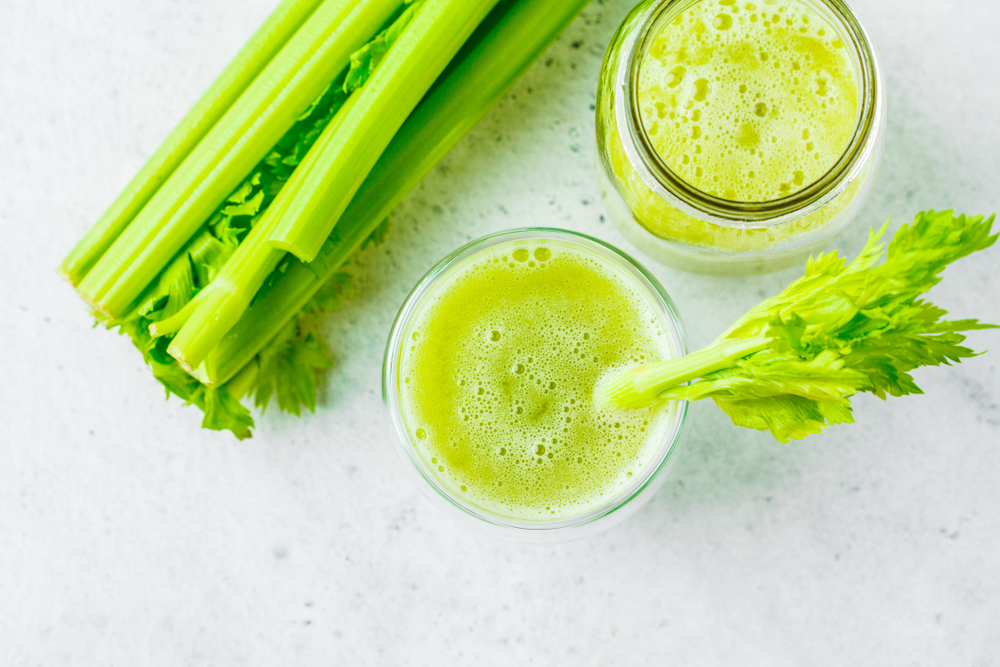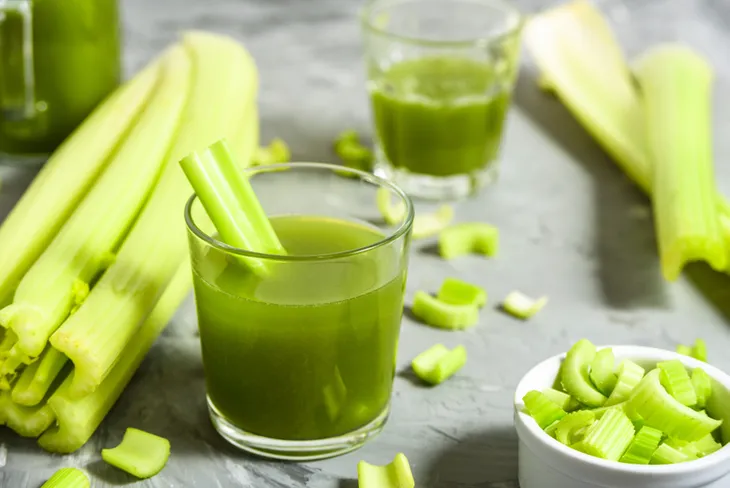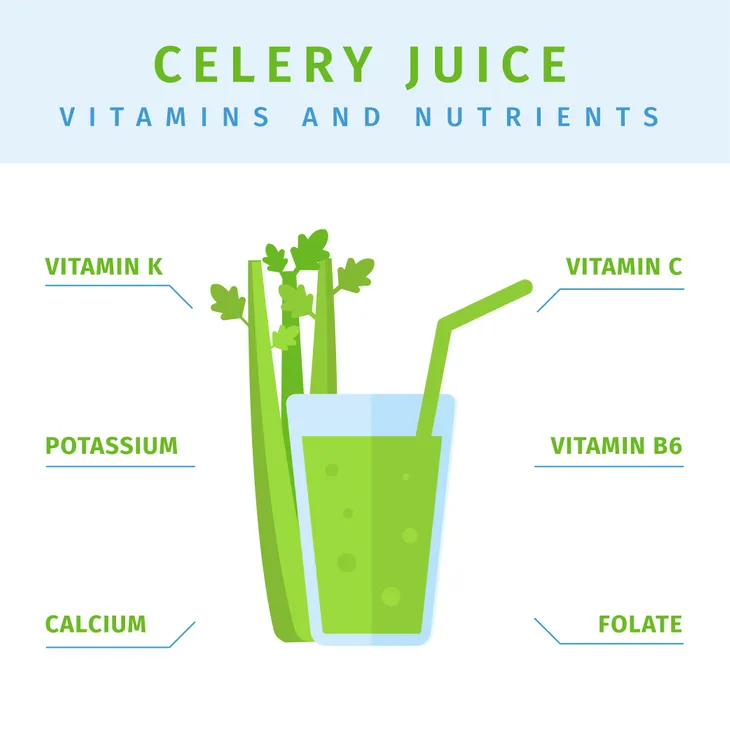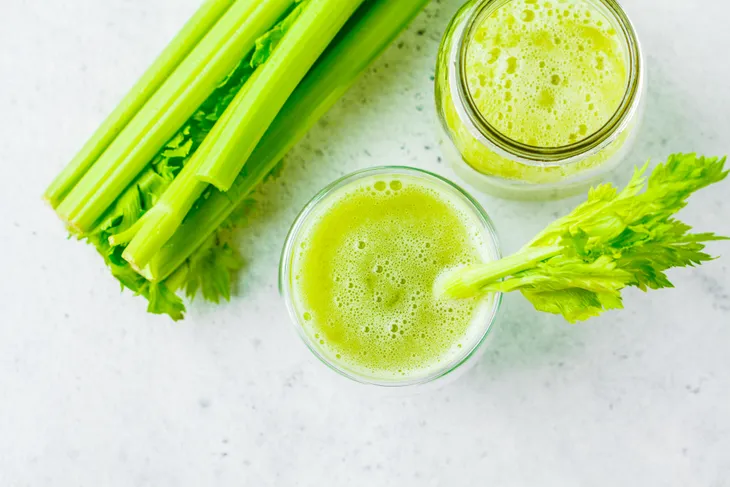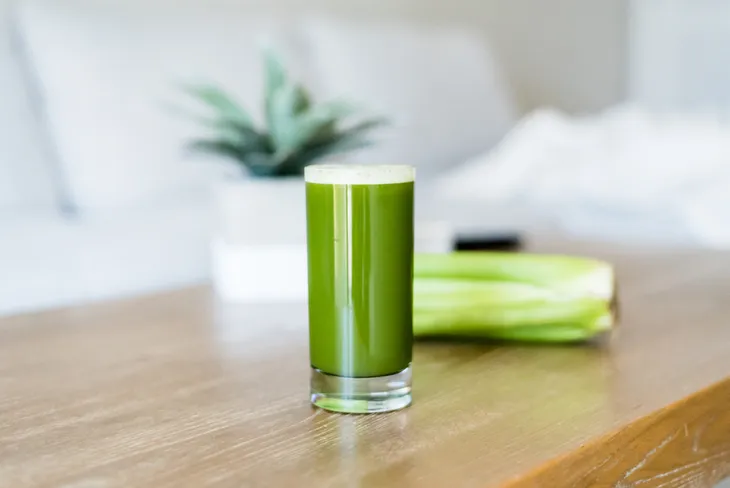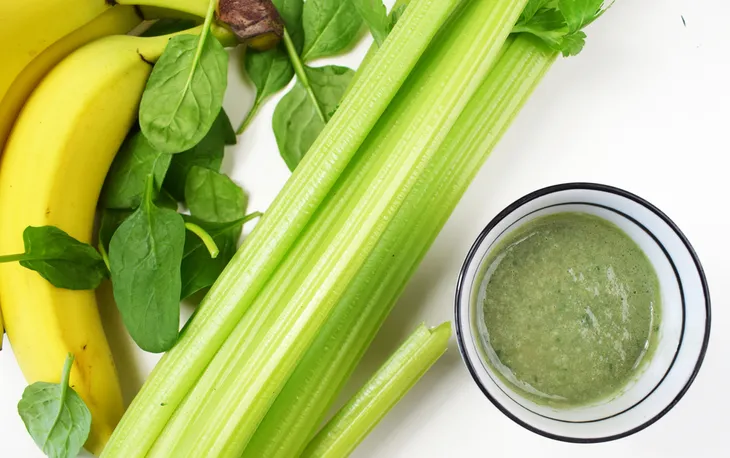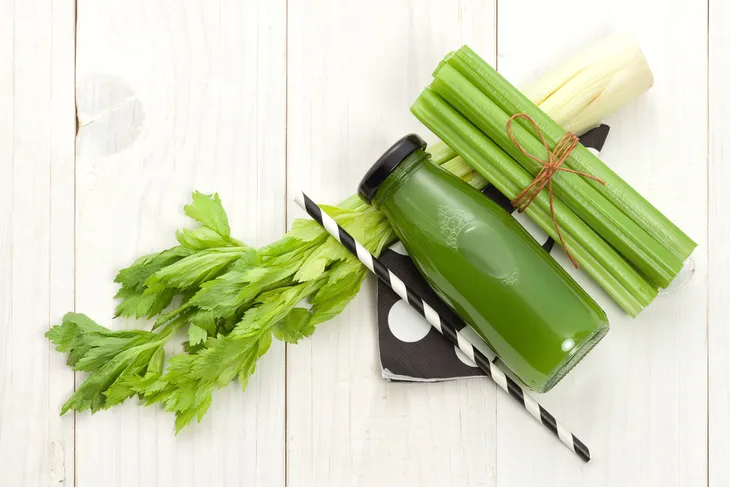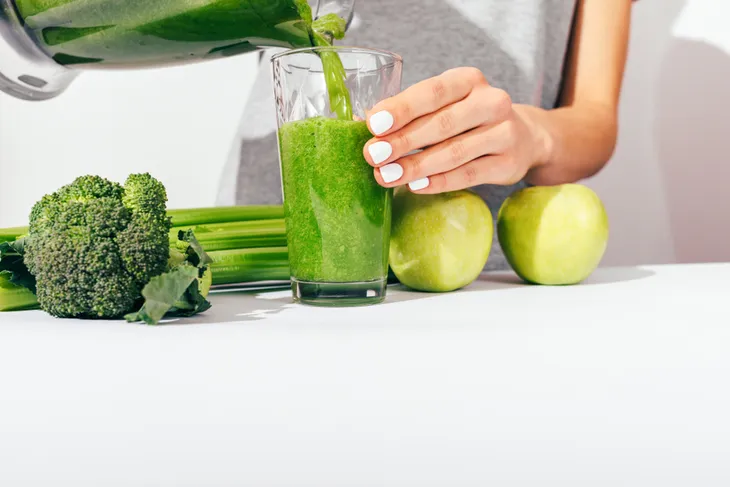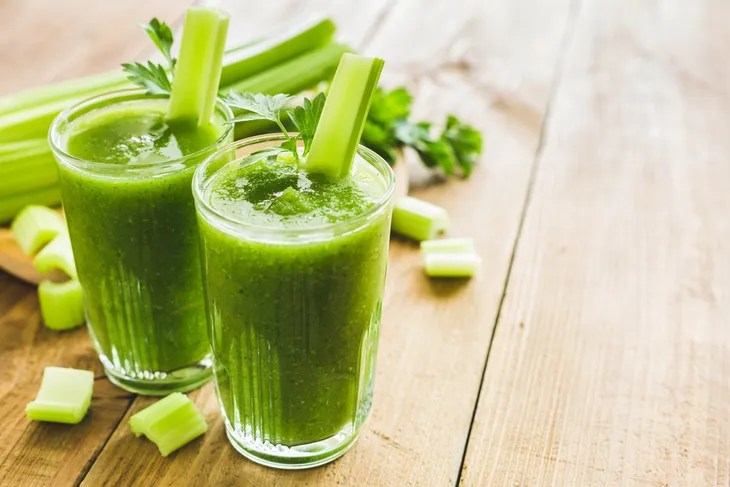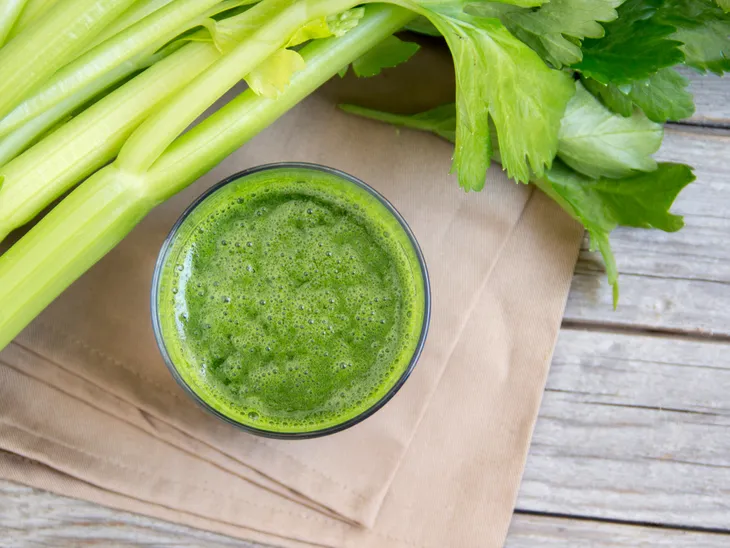Green drinks are all the rage right now, and this includes celery juice. Just be sure it’s blended! It may not sound that appealing, but there is some research that suggests drinking this could offer a host of benefits. This humble stalk does much more than stir Bloody Marys or ferry raisin “ants” across peanut butter. Celery supports everything from gut health to the immune system.
Registered dietician Julie Ching notes that juicing isn’t recommended as it doesn’t include all the nutrients and can cause distorted eating habits.
Here are 10 health benefits of celery juice and why you should add it to your diet today.
Want diet & nutrition content delivered straight to your inbox? Sign up for our exclusive diet & nutrition newsletter!
Filling Fiber
Always blend the celery until smooth, add water if it’s too thick, but a beverage made with celery can up your fiber intake. According to the USDA, the drink contains 4-grams of the filling stuff.
Fiber is prebiotic, which means it feeds the beneficial bacteria that inhabit your intestines. You need these critters. They aid in digestion and even keep your immune system working correctly. Furthermore, fiber pulls water into your large intestine, making your stools softer. If you struggle with constipation, drinking blended celery juice can ease the go. (Here are some more Easy Ways to Add Fiber to Your Diet).
Essential Vitamins and Minerals
Celery blended juice also contains a healthy supply of various nutrients necessary for the body’s functionality. Notably, this beverage contains iron, calcium and magnesium. All three minerals play vital roles in your health. Calcium helps strengthen bones, iron boosts oxygen-rich red blood cell production, and magnesium helps your intestines and brain.
Antioxidants Galore
Celery blended juice adds a potent weapon to your arsenal in the battle against free radicals. So what are these crazy-sounding things, and why are they harmful to your health?
When oxygen enters the body, it splits into two atoms, each with one electron. However, these subatomic particles like to live in pairs, so they set out to seek a mate. Much like a toxic dating site player, they weave a path of destruction on their quest. When they steal electrons from other atoms, they destabilize them, leading to cell damage and cell death.
Antioxidants are your first line of defense against free radicals because they’re able to lend one of their electrons without becoming unstable themselves. The more of these you ingest, the less damage free radicals can do to healthy cells.
Anti-Inflammatory Properties
Inflammation plays a starring role in nearly every adverse health condition known to humankind. When an area becomes damaged through injury or disease, your body rushes resources to the site, causing it to become swollen, red and inflamed.
However, over time, your body gets accustomed to these effects, resulting in more severe and prolonged inflammation. Anyone who has arthritis or even swelling around an untreated wound can tell you how painful it is to bump the affected area. Reducing inflammation decreases your agony, and celery juice can help.
Green and White Phytonutrients
Phytonutrients are naturally occurring plant chemicals that have a host of beneficial health properties. Fortunately, you can vary your intake by looking at the color of your plant-based foods. “Eating a rainbow,” or including veggies and fruits of every hue, ensures adequate consumption of all types.
Celery is high in green phytonutrients, the folate group. Mamas-to-be know that they need to increase their folate intake to nurture their developing infant’s neural tube. Additionally, celery contains traces of sulforaphane, a “white” phytonutrient noted for its anticarcinogenic properties.
Antimicrobial Properties
Many microbes can lead to illness in humans. Drinking celery juice may offer greater disease resistance due to its antimicrobial properties.
Scientists in Asia found that extracts from celery leaf proved effective against five different strains of bacteria. While scientists must conduct further research to discern precisely how the mechanism works in your body, drinking celery juice could prevent unnecessary sickness.
Provides Hydration
Celery has high water content, making its juice ideal for preventing hydration. While experts often prescribe eight glasses of water per day as adequate, you might need much more. Those who live in arid regions or participate in vigorous exercise could require more fluids.
Celery blended juice contains valuable electrolytes paired with H20. If you are trying to recover from a marathon training run, this elixir could help you replace vital minerals lost through exertion.
Helps Heal Your Gut
Some evidence suggests that celery juice may improve your balance of stomach acid. Your body needs these digestive juices to break down food, and low acid levels can cause severe health symptoms. The natural sodium content in the beverage stimulates your stomach — drinking a glass first thing in the morning could ease digestion all day.
Celery juice also contains a substance called pyrroloquinoline quinone (PQQ). This compound helps your liver recover from alcohol abuse and also improves gut health in pigs.
The Alkalinity Might Reduce Cancer Risk
Scientists know that excess stomach acid can increase your risk of esophageal cancer. Some conjecture that an overly acidic environment in the body can spur the development of other types of cancer, too.
Even though celery juice spurs acid production, it is an alkaline food overall. By lowering the overall acidity of your body’s pH, it could prove anticarcinogenic. (Here are some more Everyday Foods That Can Help Prevent Cancer).
May Improve Heart Health
You wouldn’t think a vegetable high in sodium would benefit heart health, and those on low-salt diets should exercise moderation in consumption of celery juice. However, evidence exists that celery juice can lower blood pressure and cardiovascular risk.
That’s because this veggie contains a phytochemical called phthalides. These substances relax the tissues on artery walls to increase blood flow and decrease pressure.
